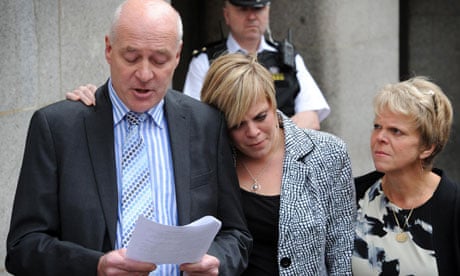A week ago, I discovered that the police had found new evidence about the hacking of Milly Dowler's phone – lots of it.
In London, Scotland Yard had finally gained access to 300m emails on News International's servers. In Surrey, officers had retrieved all the logs and records from the inquiry that they ran after the 13-year-old schoolgirl was abducted in March 2002.
Happily for both police forces, this confirmed almost everything they had previously discovered. The News of the World had indeed hired a private investigator, Glenn Mulcaire, to hack into the voicemail of the missing girl; he had succeeded; reporters had listened to her messages; Surrey police had known this at the time and taken no action; some messages were deleted; as a result the Dowlers were given false hope that Milly was still alive.
The new evidence also confirmed almost everything I had reported in July of this year. But one important element shifted: the police could no longer be sure exactly who had caused the particular deletions that led to that "false hope" moment.
Earlier this year, all parties agreed that it was the News of the World that was responsible. We had that confirmed directly or indirectly from Scotland Yard, Surrey police, the Dowler family (who had been told this by police, according to their lawyer), and even by Glenn Mulcaire who apologised for what he had done without ever trying to suggest that the deletions had any other cause.
However, two pieces of new evidence have made the picture more complex. First, Surrey police have been able to establish the exact timing of the false-hope moment, at 7pm on the evening of Sunday 24 March 2002, three days after Milly was abducted. This was a surprise for the Dowlers who had always recalled that it happened two or three weeks after her disappearance. Original police records show that, understandably in the awful stress of events, their timeframe was distorted.
Second, Scotland Yard concluded that Mulcaire was not tasked to intercept the girl's messages until after that date. This was a surprise to Mulcaire who had felt very oppressed by the Dowler revelations and who, according to a close friend, was in tears after he heard the news.
So who did delete the messages which gave false hope to the Dowlers? At first, one other fragment of new evidence appeared to provide the answer: records showed that Milly's phone would automatically delete any message 72 hours after it had been listened to. The false-hope moment happened some 75 hours after she was abducted on Thursday afternoon, March 21. But this theory then collapsed, because the records also showed that she had not listened to her voicemail since the preceding day, so the 72-hour period had ended on the Saturday afternoon.
As the Leveson inquiry heard on Monday afternoon, there is one other fragment which leaves the News of the World in a grey area. Surrey police have evidence suggesting that one of the paper's journalists had her phone number and pin code. This leaves open the possibility that, before Glenn Mulcaire was tasked, that journalist separately was hacking the girl's messages and made deletions. However, there is no confirmation of that. So far there has been no comment on this from News International.
As things stand, there is simply no explanation for what happened to the missing girl's voicemail on that Sunday evening. The police are continuing to investigate. In the meantime, they rapidly took steps to update the record. They informed Mulcaire, who issued a statement. They also submitted a short note to the Leveson inquiry. The Guardian similarly updated its story.
For those who are interested in Fleet Street's behaviour, there is one interesting point. The new evidence created just enough doubt to raise the risk that some of those who would rather the hacking saga had never happened, might try to exploit it, to make mischief. It didn't happen. Not one newspaper ran a twisted news story. Lord Justice Leveson might take heart from that.
